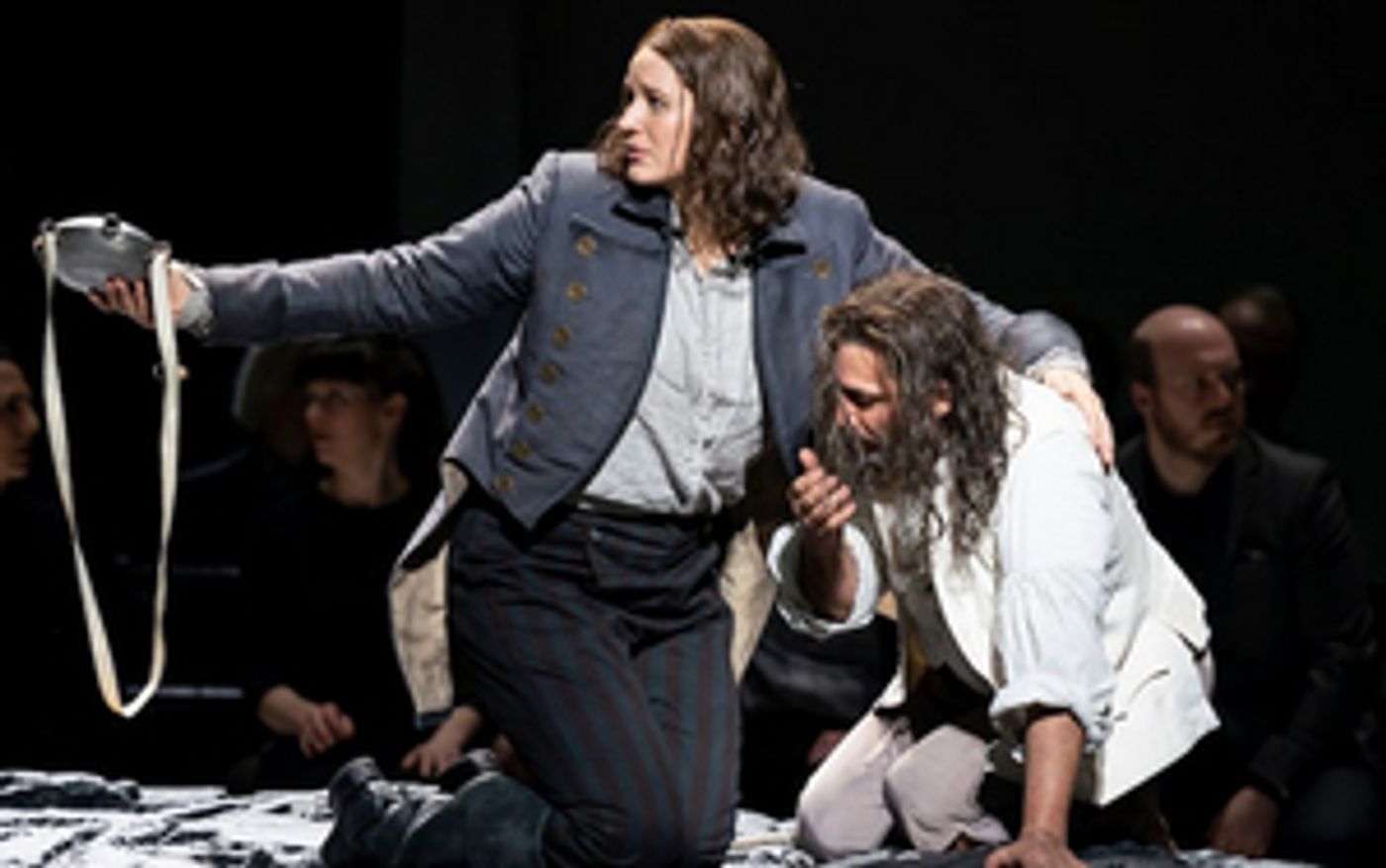Review: FIDELIO, Royal Opera House

![]() On reflection, we should have been more suspicious. But when the curtain rose on a solid, period Fidelio complete with lowering prison walls and lank-haired French revolutionaries, a basket of freshly guillotined heads adding some grisly colour, it was easy to settle in for a breeches and muskets romp. Of course, German director Tobias Kratzer had no such intention.
On reflection, we should have been more suspicious. But when the curtain rose on a solid, period Fidelio complete with lowering prison walls and lank-haired French revolutionaries, a basket of freshly guillotined heads adding some grisly colour, it was easy to settle in for a breeches and muskets romp. Of course, German director Tobias Kratzer had no such intention.
The young director has made his name in Europe with theatrical deconstructions and interrogations, and his new Fidelio for the Royal Opera is no different - it just takes rather more care to build its dramatic castle before ripping it all down again.
You could argue (as dramaturg Bettina Bartz does in her explanatory essay) that this is all Beethoven, that Kratzer merely follows the awkward contours of a work which opens as an intimate domestic drama and ends as an arms-length philosophical meditation. But you'd be reckoning without the undeniable kick of emotion that this flawed, troubled, uneven work can muster at its traditional close. If you're going to pull bricks out of Fidelio's fragile structure, you'd sure as hell better have an exit strategy for when the opera comes crashing down around you.
Kratzer's premise is a simple one. His staging questions our voyeuristic approach to history, our desire to dwell on its horrors, to thrill at its adventures, but our seeming inability to apply the lessons we learn from it. So a literal Act I (transposed from Spain to Revolutionary France) gives way to conceptual Act II, in which Florestan finds himself imprisoned in a dazzlingly lit boardroom surrounded by rows of business-suited onlookers, whose reactions are projected as black-and-white video above the action.
"Whatever you see and hear, do not forget!" Leonore exhorts an impassive crowd, who might be a war crimes tribunal or delegates from the UN. Bearing witness, testifying to the human truth of political oppression, should feel emotive, charged, but here it's just an intellectual construct, a concept to be deployed. Kratzer's lack of theatrical discipline - his reckless scattering of alienation techniques, his excess of ideas, his jolting period anachronisms and clumsy physical direction - dilutes his message irredeemably.
But Kratzer wasn't the reason the Royal Opera House was packed full of the international great and good at 3pm on a sunny Sunday. This was a production sold (and sold expensively) on star power. The audience pretty much got what they paid for. An opening announcement begged indulgence for an ailing Jonas Kaufmann, but from a first note that packed worlds of colour, texture and emotion into a simple crescendo, the tenor delivered all that was required. The trouble was that his Leonore, Norwegian soprano Lise Davidsen, all but obliterated his Florestan by delivering so much more.
Davidsen's once-in-a-generation soprano is a huge voice not yet entirely under control. But that sense of edgy power, of instinctive, sometimes explosive, force makes for a Leonore of fantasies. Physically tentative but vocally assured, she catches the contradictions of a woman forced to deceive in order to expose truth, to wound in order to spare her husband from suffering. Her "Abscheulicher" was a call to arms, heroic but warmly human, steely but glowing with feeling.
Some strange supporting casting choices give us the impeccable but small-voiced Amanda Forsyth as Marzelline - too light to carry the dramatic weight Kratzer's rewritten denouement demands of her - and Simon Neal as a strained and often wayward Don Pizarro. George Zeppenfeld's sympathetic Rocco is more successful, though poor direction makes a muddle of his relationship with his pleasure-seizing, freedom-fighting daughter. Antonio Pappano conducts a rather bleak account of the score, taut and tense, all indulgence banished.
There's a perfectly serviceable and by no means provocative production of Fidelio underneath the rubble of ideas Kratzer and his team have dumped on stage here. Edits could easily clarify the argument and streamline the action, supposing that obfuscation isn't part of the aim. As it is, though, Fidelio is an expensive muddle redeemed by one unstoppable performance.
Fidelio at the Royal Opera House until 17 March
Photo Credit: Bill Cooper
Reader Reviews
Videos

